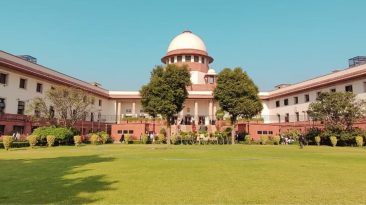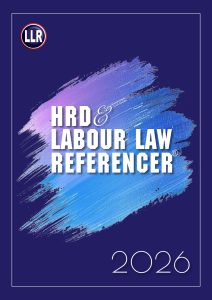Introduction This article examines the Supreme Court’s significant ruling in Vaneeta Patnaik v. Nirmal Kanti Chakrabarti & Ors., which establishes important judicial precedent under the Sexual Harassment of Women at Workplace (Prevention, Prohibition and Redressal) Act, 2013 (hereinafter...
Introduction In a landmark judgment delivered on June 4, 2025, the Supreme Court of India in Harinagar Sugar Mills Ltd. (Biscuit Division) & Anr. v. State of Maharashtra & Ors. (2025 INSC 801) has provided crucial clarity on the delicate balance between an employer’s constitutional...
Written Complaint Mandatory, Hostility or Adverse Employment Action is no Sexual Harassment; Kerala HC
In this significant decision under the Sexual Harassment of Women at Workplace (Prevention, Prohibition and Redressal) Act, 2013 (“PoSH Act”), the Kerala High Court’s Division Bench recently has held that: A written complaint under Section 9 is mandatory for an inquiry to be valid. Oral statements...
The Delhi High Court’s recent decision in Wipro Case represents a significant evolution in employment law, establishing that contractual termination validity and tort liability for defamatory statements are distinct legal issues. judgment emphasizes the critical importance of evidence-based...
The Court held that maternity benefits are constitutionally protected under Article 21 (Right to Life and Personal Liberty), observing: “Life under Article 21 means life in its fullest sense; all that which makes life more meaningful, worth living like a human being.” The Court also referenced...
Navigating the Digital Personal Data Protection Act, 2023: An Overview for Indian Employers
Indian employers at present to continue to comply with the SPDI regime while preparing for a transition to the DPDP framework. By implementing clear internal policies, ensuring lawful processing, enabling employee rights, and building strong governance systems, employers can foster a culture of...
While the PoSH Act provides critical protection against gender-based "sexual harassment" at the workplace to an "aggrieved woman," it should not be extended to include alleged harassing conduct that is devoid of any sexual connotation.
In a statutorily grounded and factually driven ruling, the Madhya Pradesh High Court in Shankarlal Namdeo v. State of Madhya Pradesh & Others (W.P. No. 17827 of 2024) set aside a transfer order issued under the guise of Section 12 of the Sexual Harassment of Women at Workplace (Prevention...
Exclusive Jurisdiction Clauses in Employment Contracts Get Supreme Court’s Seal of Approval
Introduction In a landmark judgment that could significantly influence employer employee litigation in India, the Supreme Court in Rakesh Kumar Verma v. HDFC Bank Ltd. (2025 INSC 473) has upheld the enforce ability of exclusive jurisdiction clauses in private employment contracts. Delivered on...
A recent judgment of the Madras High Court has emphasised on a nuanced approach to fairness, appreciation of evidence, and procedural justice in sexual harassment inquiries.





















